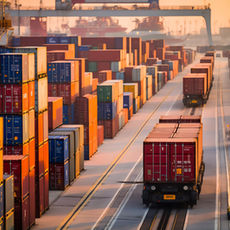

Forging Sustainable Partnerships: NetZero Pallet's Commitment to ESG and a Greener Future
Discover how NetZero Pallet's strategic partnerships are driving sustainability and ESG practices in the logistics industry.


NetZero Pallet: Driving ESG Excellence with Sustainable Solutions
Discover how NetZero Pallet champions sustainability through innovative ESG practices, offering 100% biodegradable pallets.


NetZero Nestable Pallets: A Solution for Space Optimization and Increased Productivity
Explore the benefits of nestable pallet - NetZero Pallet, and how NetZero Pallet outshines traditional wooden pallet in truck loading.

_edited.png)















